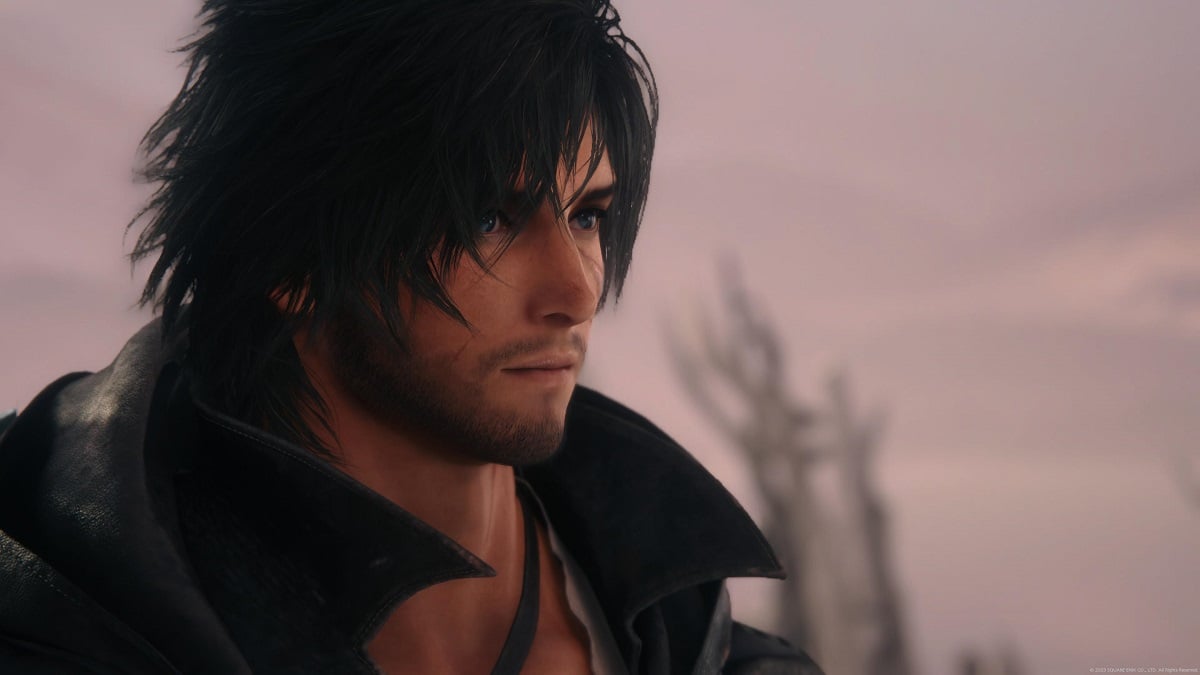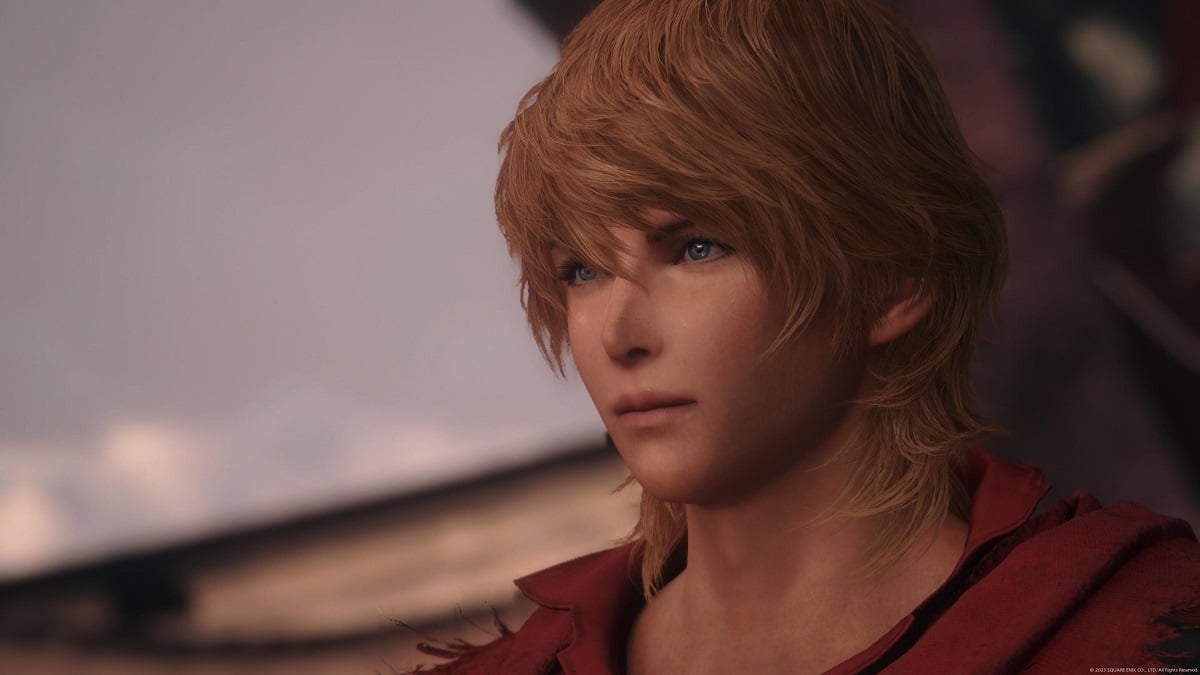Warning: The following article contains spoilers for Final Fantasy XVI and its ending.
What happened to the two Rosfield brothers at the end of Final Fantasy XVI? Let’s take another look at the facts as they were presented to us.
The developers of the highly acclaimed Final Fantasy XVI opted to conclude the game in an incredibly vague and open-ended manner, so that when those credits started rolling, most people found themselves wondering if what they saw in those final moments was actually what they saw, or whether the game just bamboozled them into thinking that the fate of our main characters is set in stone.
We’re, of course, referring to Clive and Joshua Rosfield — the two brothers around whom the entire sixteenth installment centers. In the final act, the Rosfields confront Ultima one last time, resulting not only in a cataclysmic event that changes the shape of Valisthea, but also their own demise.
At least, that’s what the game wants you to believe. If you were to look more closely, though — say, even finish those plot-important side quests — would you still believe that both Joshua and Clive succumbed to their wounds in the last chapter? Well, the answer to that question is not as straightforward as you’d imagine.
Did Clive and Joshua die?

The story of Final Fantasy XVI can take upwards of 40 hours to unfold, which is comparable to more than twice the length of your average video game experience, almost four whole seasons of television, and perhaps even a very lengthy novel. And in that long journey, we’ve repeatedly seen our characters being thrust into danger, and come out of insurmountable odds almost unscathed.
Of course, one might argue that a huge portion of that runtime is taken up by gameplay — and that’d be true — but the way XVI blends storytelling and gameplay into a seamless experience makes it seem like we’ve been living with these characters for quite a while. One of the tropes that the game utilizes to keep the pacing balanced in the face of that long playtime and those recurring encounters is fake-out deaths, so unless you see a body thoroughly perish and fade away into dust, there can be no telling whether a character is truly dead in Final Fantasy XVI.
I mean, the game essentially starts with Clive’s newly risen Eikon of Fire fighting his brother, seemingly killing him in the standoff. It is only hours after that we learn Joshua is still alive, and that the Phoenix — true to his name — managed to rise from the ashes once again. So would it be that surprising to learn that he might also have come out of that last encounter with Ultima alive?
Final Fantasy XVI certainly makes a case for it, even if a bit grudgingly at that. When Clive defeats Ultima and returns to Joshua’s corpse in the main chamber, he uses Ultima’s powers to heal Joshua’s wounds. You might interpret that as Clive simply repairing his brother’s body out of respect, but it could just as easily imply that he tried to resurrect him. Joshua doesn’t stir, of course, but the post-credits scene taking place many years after the event of the game seems to suggest that he might have survived after all, and penned the Final Fantasy book himself.
We already know that Clive drawing out someone’s power doesn’t necessarily kill them, or even strip them of their Eikon. So, I think if Joshua still retained the Phoenix, he might have used its powers to regenerate. And with Clive and Ultima fighting on another plain, this might have given him the breather he needed to survive.
Then again, a lot of people seem to think that it was Clive who wrote that book in the future and published it in Joshua’s name. The game makes it seem Clive also failed to return to the Hideaway and perished at the beach, turning Akashic like many other Bearers before him. But there are two main reasons why that could just be another red herring.
Did Clive survive the clash with Ultima?

First off, when we see Jill and Torgal in the Hideaway, the two are sick with worry over Clive. Torgal is looking out a window, and when he barks, Jill joins him and looks at the sky, glimpsing the red star of Metia next to the moon. The star fades away, and Jill starts to sob helplessly. Even Gav sheds a tear, while Torgal lets loose a gut-wrenching howl, implying that Clive may have just died.
But is that really what the final scene indicated? We know the people of Valisthea believe that Metia grants wishes, so it fading away could hardly translate to Clive dying. Perhaps Jill wished for his friend and lover’s safe return, and the star granted that wish. Some fans even argue that those could be tears of joy, and that howl an expression of triumph.
Besides, we have reason to believe that the scene taking place immediately after clearly hints at Clive being alive. In one of Jill’s side-quests, titled “Priceless,” the two protagonists reflect on the strange life they’ve shared, and Jill remarks that she always knows Clive will return to her at the breaking of dawn. Well, how would you interpret the game’s final scene, depicting the sunrise and Jill looking at a horizon and even showing a hint of a smile?
In another quest (“A Tale to Tell”) involving the scholar Harpocrates, Clive discusses his dreams of retiring as Cid the Outlaw and penning down everything that happened to them. This gives us reason to believe that Joshua may have died, but Clive survived and wrote the Final Fantasy book.
With all of these hints, we are faced with three possibilities:
- Clive and Joshua both died, which seems highly unlikely.
- Clive and Joshua both survived, which begs consideration.
- And lastly, Joshua died, but Clive survived, which seems most likely.
Frankly, we’ll never know for sure until the developers address the ambiguous ending. Perhaps the recently announced DLC might finally answer some of these burning questions. At any rate, I’m sure we’d all like to see the Rosfield brothers reunited at some point in the future, and we can’t do that if one or both of them are dead.

